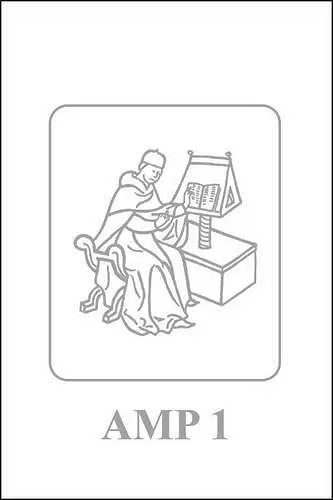Petri Thomae
Quaestiones de esse intelligibili
Petrus Thomae author Garrett R Smith editor
Format:Hardback
Publisher:Leuven University Press
Published:7th Jul '15
Should be back in stock very soon

First critical edition of Petrus Thomae’s theory of non-causal dependence.
This work of Scotist metaphysics is an investigation into the ultimate constitution of things. In the course of this treatise, Petrus Thomae examines whether the essences of things ultimately depend on being thought of by God for their very intelligibility or whether they have it of themselves. Defending in detail the second option, Peter argues that creatures exist independently of the divine intellect in the divine essence. They enjoy real, eternal being in the divine essence and objective being in the divine mind. Aware that these views conflicted with his belief in the Christian doctrine of creation, Peter laboured to alleviate the conflict with a theory of non-causal dependence, according to which even if God did not cause creatures to be in the divine essence, nevertheless they are necessary correlatives of the divine essence.
This publication is GPRC-labeled (Guaranteed Peer-Reviewed Content).
'On ne peut que recommander cet ouvrage, qui complète notre connaissance du scotisme, enrichit notre compréhension de la pensée théologique et philosophique franciscaine, et présente une conceptualisation
originale de la notion de dépendance ontologique, susceptible d’intéresser les métaphysiciens néo-aristotéliciens.'
Magali Roques, Revue philosophique de la France et de l'étranger 2017/3 (Tome 142), p. 377-434
DOI 10.3917/rphi.173.0377
Make no mistake, this is a good edition. Once Garrett Smith had collated in full all eight witnesses with tremendous effort and considerable success, when analyzing the readings and forming the text, he unfortunately found that the manuscript tradition exhibited evidence of both contamination and slight revision, even contamination across the two redactions. The surviving manuscripts of both redactions, moreover, did not provide clean texts—indeed, one could not even cobble together a perfect text from all witnesses taken together. Smith did a good job investigating and explaining what had happened, although the more complicated the situation, the greater the number of possible explanations. In the end, instead of printing the flawed text of gamma or N (and relegating the other to the apparatus criticus), either of which would have required editorial emendation, Smith chose to edit a combined text. The result is a perhaps necessary compromise, generally as close to Petrus Thomae's original(s) as we can get. For this heroic solo effort, Garrett Smith deserves our praise and gratitude.
Chris Schabel, Vivarium 54 (2016) 357-362, DOI10.1163/15685349-12341324
What kind of being do creatures possess before creation? That is the overall problem dealt with in Peter Phomae's Quaestiones de esse intelligibili that have now appeared as the first volume in a new series devoted to the works of Peter Thomae (Petri Thomae Opera), a subseries within the well-known series Ancient and Medieval Philosophy of the De Wulf-mansion centre, Leuven. That the Franciscan friar Peter Thomae († 1340), henceforth Pt, is given his own series is remarkable, considering that he has not as yet attracted too much attention from medievalist scholarship. Certainly, some of his works have long been available in critical editions, but the new series that will contain his major works will provide a much more adequate impression of his way of thinking and is bound to shed new light on the intellectual history of the early 14th century, especially on the earliest stage of the Scotist school. [...] The solid scholarship presented in this first volume allows us to have high expectations in regard to the next volumes in the series.
Claus A. Andersen, Archivum Franciscanum Historicum - Annus 109 - Ianuarius - Iunius 2016 - Fasc. 1-2
ISBN: 9789462700352
Dimensions: unknown
Weight: 907g
280 pages